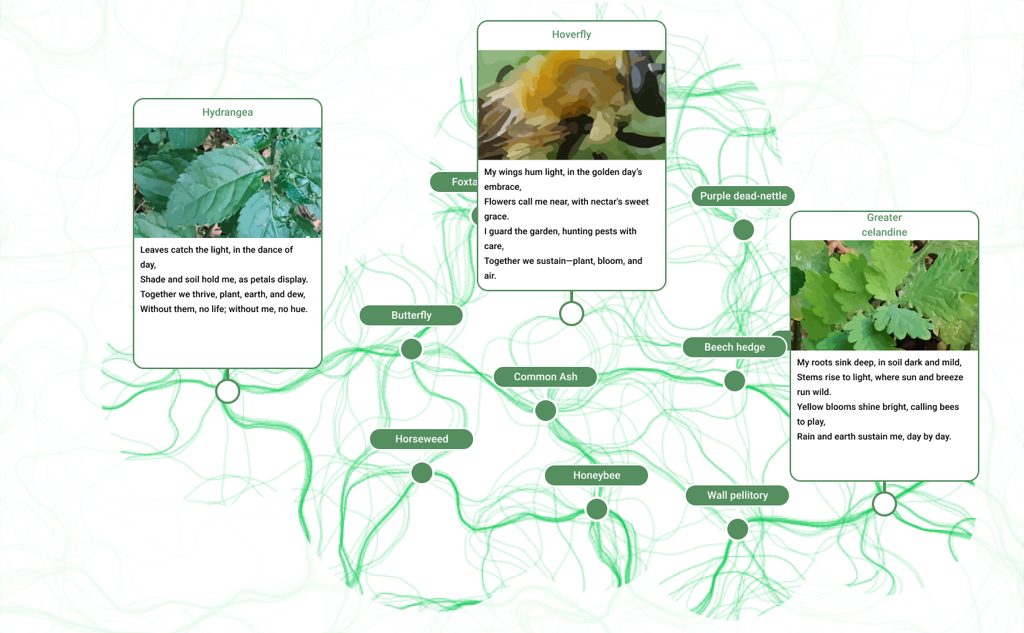Entangled Intelligence
Timon Adriaanssen, Dave Murray-Rust, Roy Bendor, Roni Bulent Ozel
Human exceptionalism has caused us to believe that we are separated from and superior to nature. This perceived separation has made us misuse natural resources for selfish gains; tipping the natural balance and triggering the climate to develop in unprecedented ways. Although major corporations and their use of technologies are largely to blame for climate change, this problematic perception is also noticeable on a local scale. Communities are being forced to prepare for the changing climate, but they often lack the knowledge and resources to initiate adaptation measures. To act more sustainably, we need to rethink how we relate to our natural environment and how we use technology.
Who do you consider when working towards a climate-resilient community?
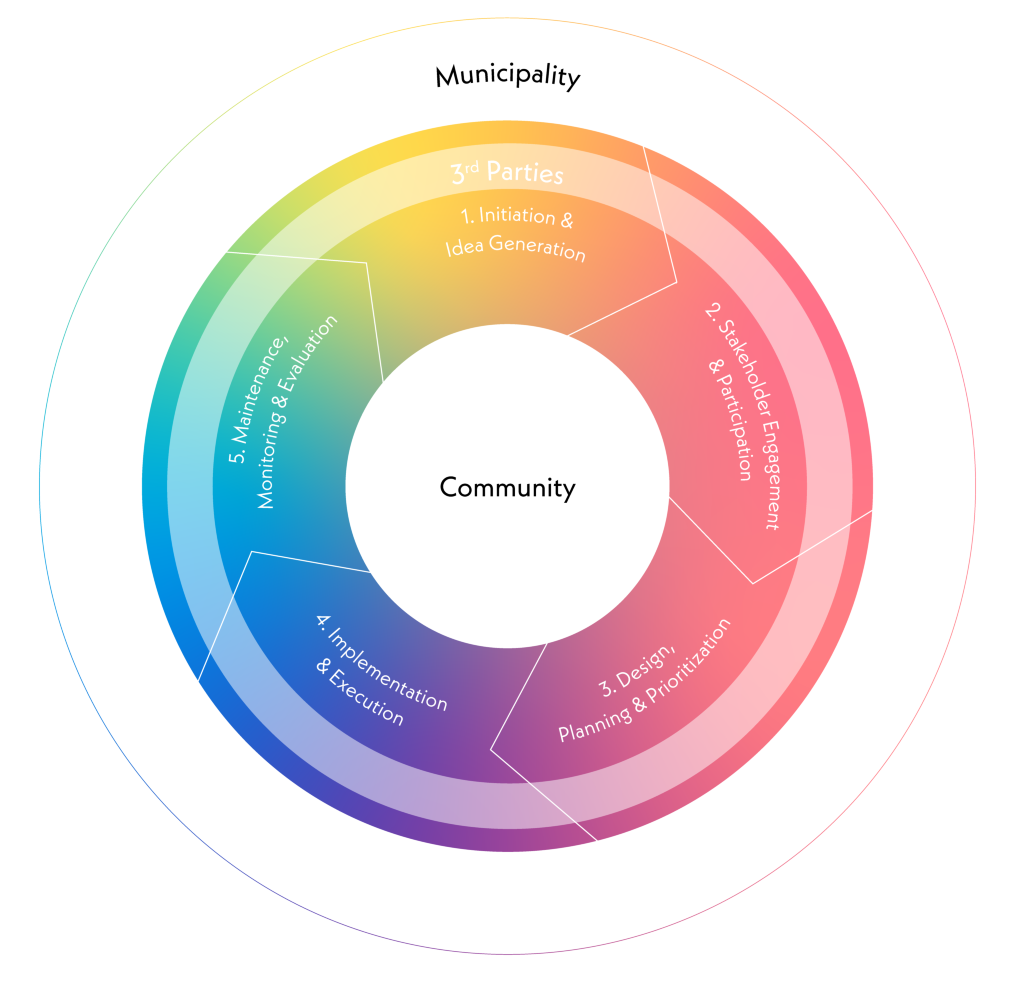
What if, instead of using AI technology to further separate citizens from the natural world by providing immediate answers, it’s deployed to collaboratively build knowledge with citizens and change their relationship with the natural environment? Together with a chatbot and image-recognition software, citizens are asked to explore the plants, insects and animals that surround them, and to offer descriptions and photos to the AI system. Identified species are presented poetically, showcasing the experiences and needs of the species. These species are then placed on a Map of Entanglements; a relational visualisation of species within their ecosystem.
This collaborative investigation explores how AI systems can strengthen urban communities through knowledge-sharing and storytelling while pushing them to consider the entanglements and interdependencies of natural species and their environment. Through poetics and relationality, the system challenges citizens to question who they consider when initiating adaptation measures in their community.
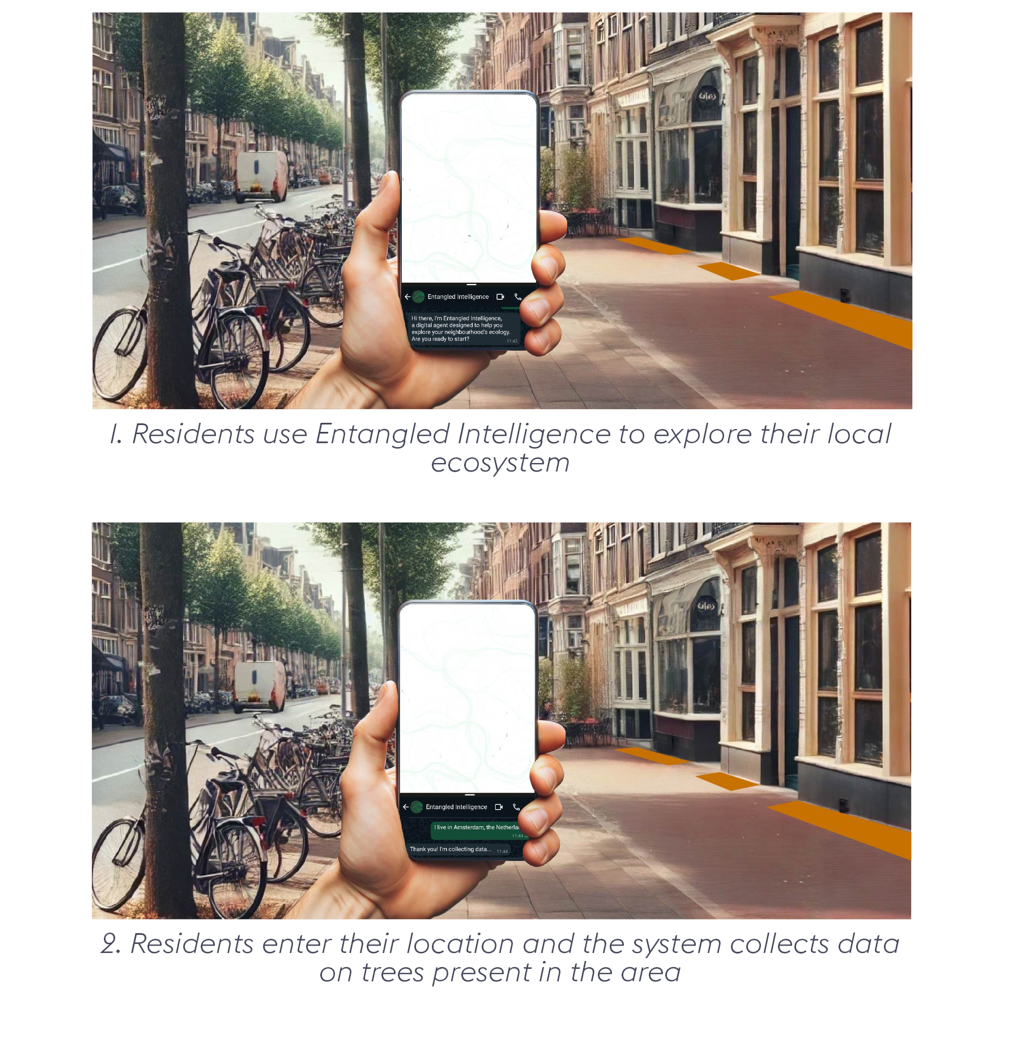
As we become aware of our entanglement and interdependency with nature, we can start to design our environment in a way that benefits all parts of our ecosystem, instead of only us. To sustainably adapt to the changing environment, we must understand how we, and our technologies, relate to the natural world.
It’s important to understand that this exploration of the ecosystem is only a small part of adaptation projects. There are many aspects to building a climate-resilient community, and some will clash with the needs of natural species. This project has explored how AI systems can help expand our community to include other species, but it remains unknown how exactly these communities will differently approach adaptation projects.
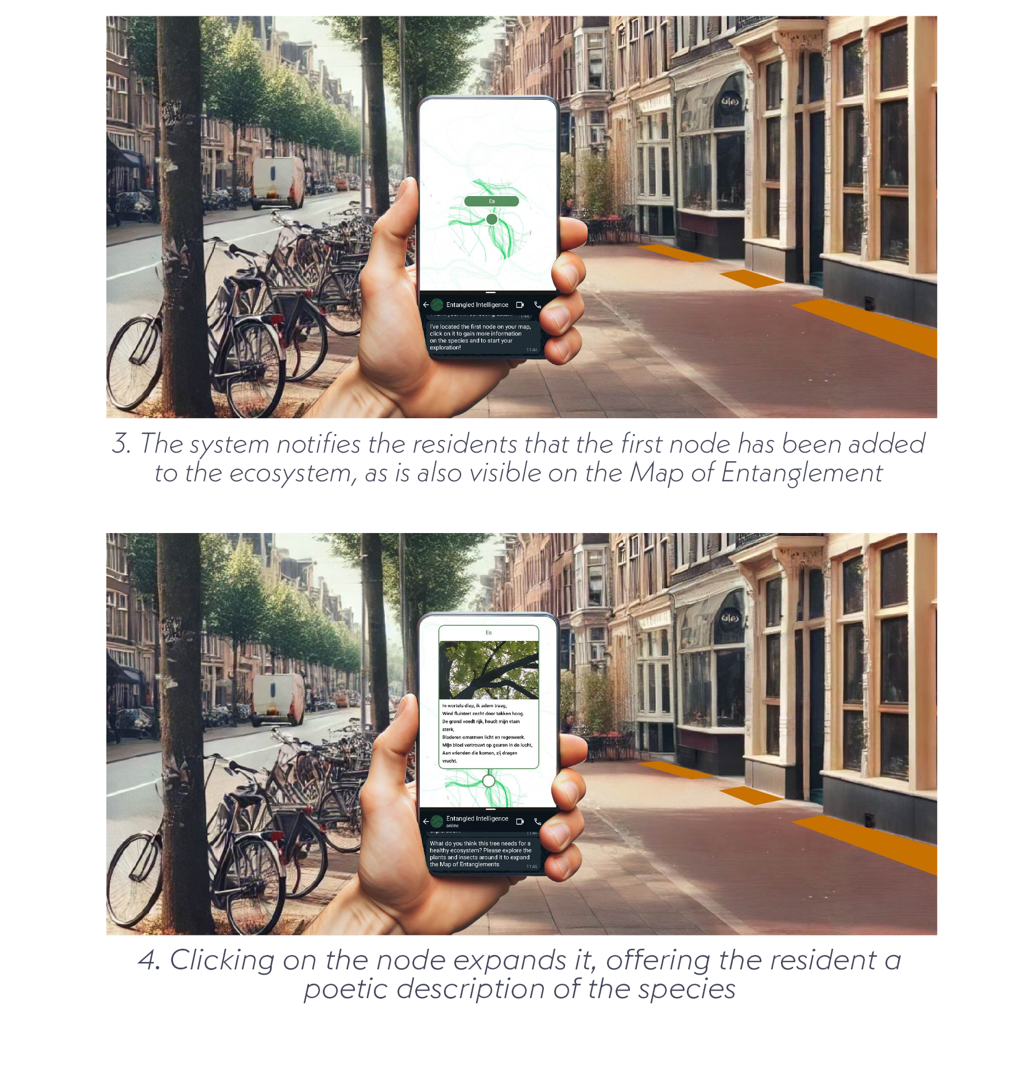
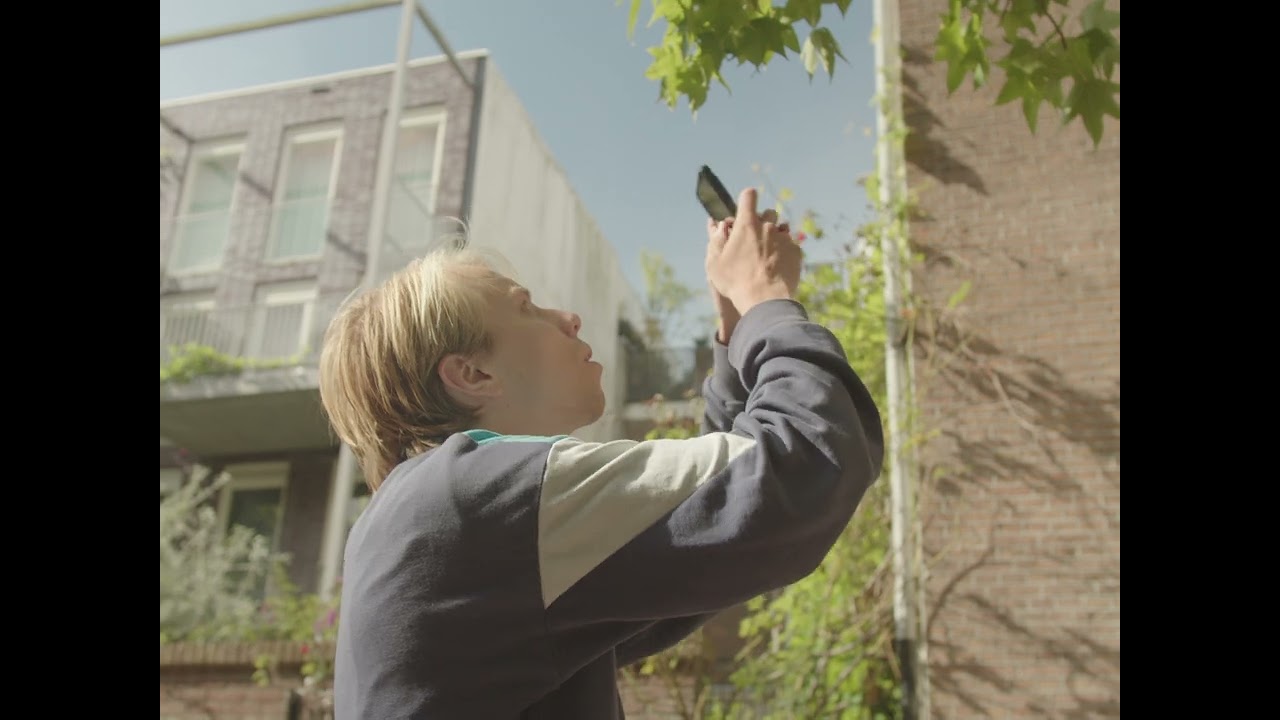
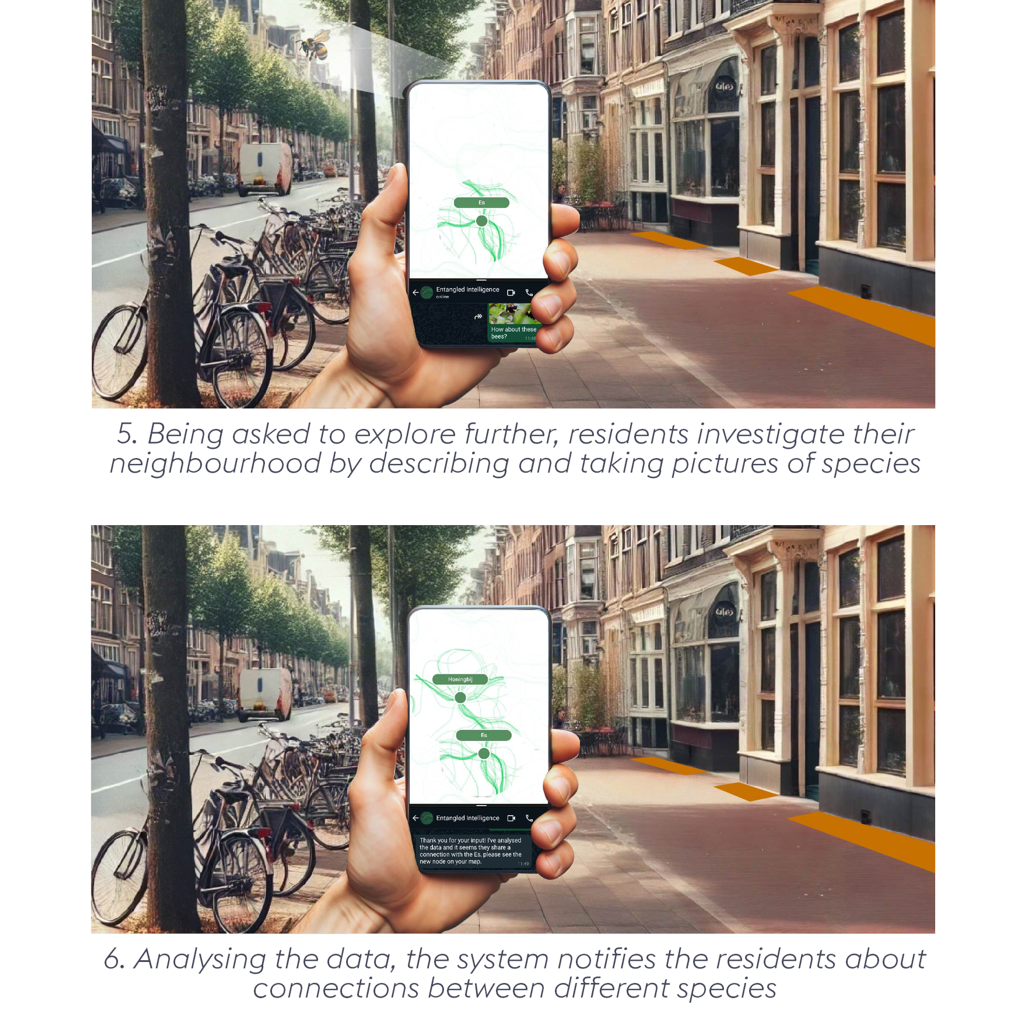
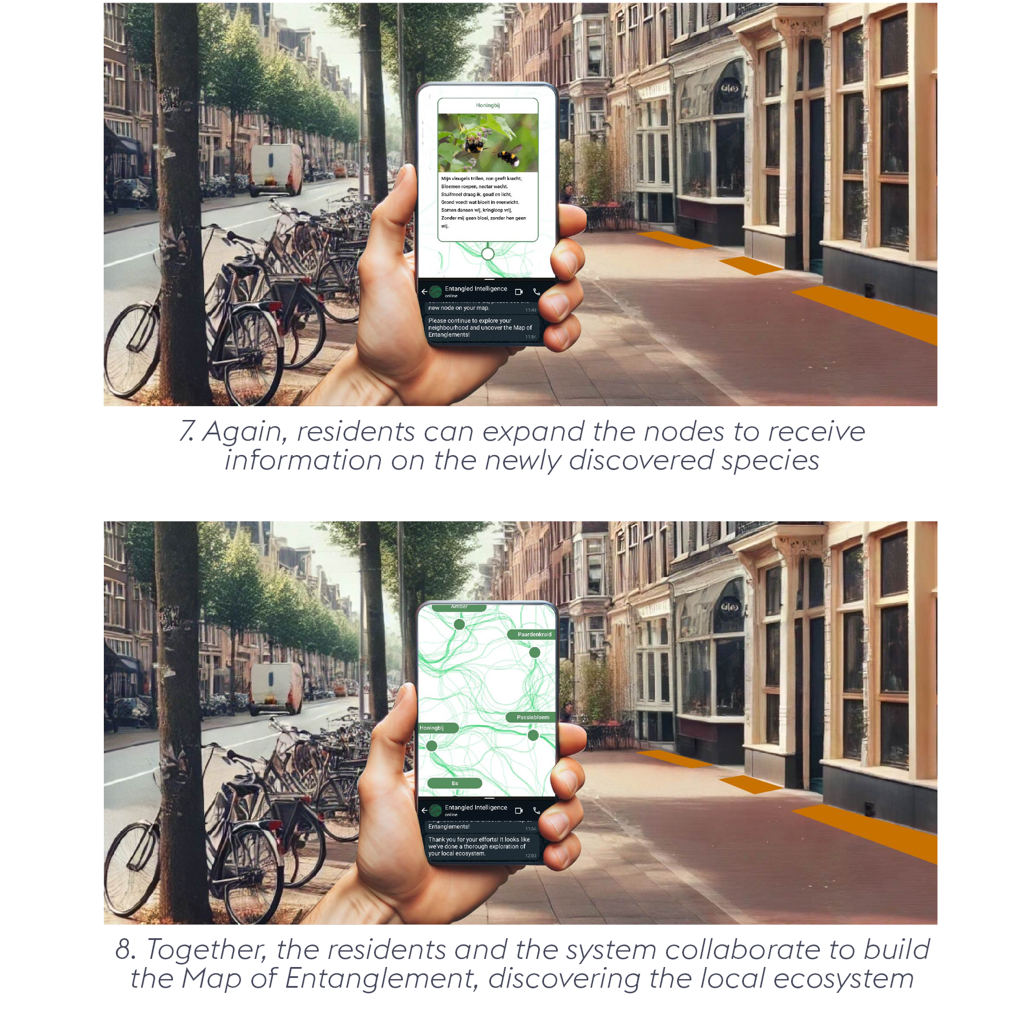
Share
Contacts
- -




